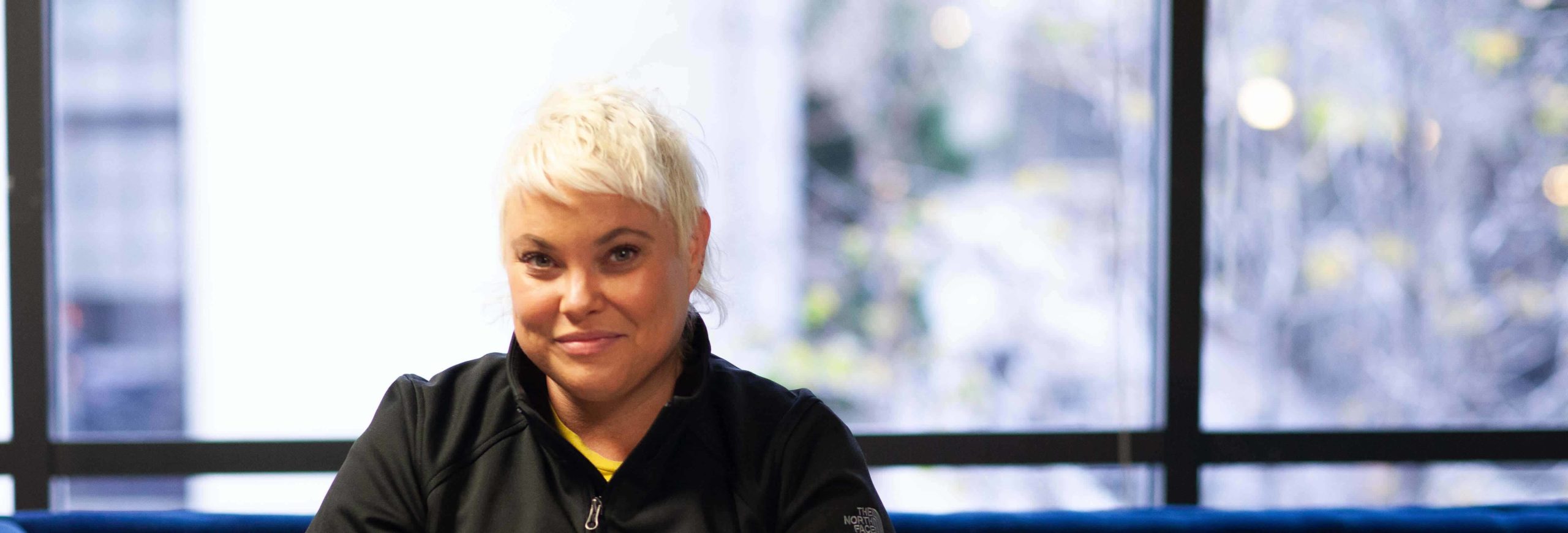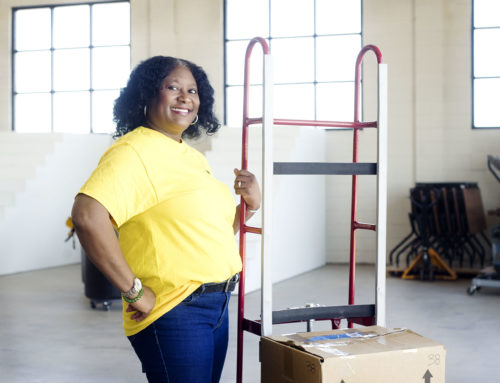Yong Kim
Let’s Meet Katie
Katie joined Wonolo as the Head of People in 2018. She previously ran the People team at Gusto, where she helped grow the team significantly. She also spearheaded launching California’s first LGBT-friendly fertility benefit.

What are you grateful for today?
Today, it is my honor to be part of an amazing mission. Through technology, Wonolo enables an underserved part of the community to find work which, in turn, helps them to take care of their children, put food on the table, pay their rent and ultimately to make a better and more fulfilled life for themselves. We make work flexible and fulfilling for everyone.
When you were in high school, what did you dream of becoming?
When I was 14, I fell in love with the guitar. Those were the days of Nirvana and Pearl Jam. I taught myself how to play ‘Smells Like Teen Spirit’ on a guitar I borrowed from my next door neighbor. After mastering those early classics, I started to write my own songs. About halfway through high school, I decided I wanted to be a rockstar. Not just a well paid, working musician but an actual real-life rock star.
At 16, I graduated early from high school and spent the rest of my teens and early 20’s in pursuit of that dream. I moved to Hollywood to go to music school, but ended up hating it. So, I dropped out to start a band.
During our 10 year run, we made a few records, had a great time, and got relatively close to making it. I still play music today; in fact, I just started banjo lessons. It’s neat to play just for the joy of it rather than to achieve a specific goal. Today, I’m proud to say that my 6-year-old son pretty much thinks I’m a rockstar, so I feel like I ultimately achieved my dream, albeit in an unexpected way.
What events in your life have led you to your current role/job today?
When I was starting out in this profession, I received a really impactful piece of advice which has stayed with me and colored how I have thought about each step in my career. The advice was to not worry in the least bit about things like promotions, title, salary or accolades. Instead, my main focus should be centered on learning.
Learn everything you can, about anything you can. It is the one thing that I had absolute control over during the span of my career. With each new skill acquired or expertise gained in a subject, new opportunities, new doors, and new avenues to advance have presented themselves to me.
This general philosophy has been my “true north” during the last 10 years of my career.
In terms of specific events, my father passed away a little over 4 years ago. He was very young and his death was sudden. The pain and grief of his passing have given me a healthy perspective about what’s important and what’s inconsequential. In a way, this perspective helps me to feel free to take risks, to dream big, and try to accomplish as much as I can every day because I know that failing is inconsequential, and trying is everything.
When things do not turn out the way you planned, what is the first thing you do?
The first thing I do is evaluate if whether the way it turned out is actually better than what I had originally planned. Often times, it actually turns out to be better.
Specifically, with People programs, there are lots of ideas that are great in theory, but end up not working in practice. When that happens, the right solution has a way of organically evolving.
If it’s not better, then I’ll reflect on what happened and actually go through the process of giving myself feedback. I find that, if I’m proactive about doing this, it not only makes receiving feedback easier; I can get to a better solution or make adjustments more efficiently.
When you have to make a difficult decision, what do you lean on?
Some of the hardest decisions I make are around employee relations issues. Each person, each situation, and ultimately each solution are entirely unique.
Over time, I’ve built a large reserve of experiential knowledge that I rely on to help guide my decision making. Because each situation is so different, I find myself relying equally on instincts and intention.
I’ve been fortunate to find a profession where I can marry doing something that I love, which is also something I’m good at, with something that companies need. I rely most on my intention of authenticity and my belief in the dominant goodwill of humanity. I have, of course, inevitably made bad decisions. However, each one has become a stepping stone on the path of who I am today and what I will decide to do tomorrow.
What is one life advice you can give to anyone?
Battle imposter syndrome with every fiber of your being. The nature of working at a startup is speed.
The speed of growth at a startup often outpaces the speed of personal growth. This is okay. This is normal. This is not necessarily outside the realm of what you are personally capable of achieving.
The trick is to acknowledge and be vulnerable about what you don’t know. Don’t fall into the trap of thinking that you have to know everything at all times.
For example, I recently became tasked with the job of leading IT at Wonolo. I’ve been a happy customer of IT for my entire career, but have never been tasked with making sure that IT at a high growth company met all of its high expectations. Security, equipment, even AV – especially in a company whose workforce is distributed – aren’t something that in my career I’ve had experience being ultimately responsible for.
Perhaps more importantly, this is my first experience, at any company, sitting at the leadership table. I know from first-hand experience what imposter syndrome feels like. My internal dialogue often goes like this: “Should I have said that? What if nobody agrees with me? What if they find out that I have no idea what I’m doing? What if they decide that I’m not good enough? What if I’m actually not good enough?”
A piece of advice that I received from Lexi Reese, COO at Gusto, that has helped me breathe through these doubts is this: “if you aren’t uncomfortable, you aren’t learning.”
Every time I doubt myself, I try to tell myself “this is a good thing, you are growing, you are getting better, you are achieving 1% improvement every day”. For those of you familiar with Kaizen, you understand. For those of you not familiar, the concept of Kaizen (the Japanese word for “improvement”) at a high level means this: If you are 1% better today then you were yesterday, you can NEVER fail. When that doesn’t comfort me, I go back to what my father taught me: failing is inconsequential, trying is everything.
Please finish this sentence: If you really knew me, you would know that _____.
If you really knew me, you would know that I am a dork of epic proportions. That I am mission and family driven. That I seek to prove that everyone has a place at the table.
That I believe in human rights for everyone: men, women, trans, LGBTQ, black, brown, white, and in-between. That I am passionate about figuring out the best way that we can work together to form the future.
Today, I am on a mission to empower anyone who wants to be able to find flexible work that allows them to take care of their families, put food on the table, and pay their rent. There is no higher calling than helping people find jobs.
If you knew me, you would know that I am on a mission.







